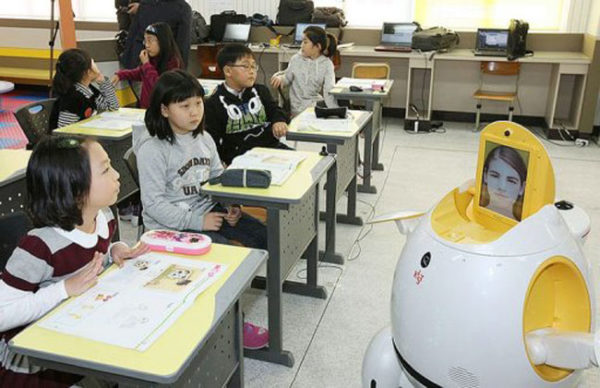Today, as every Wednesday, I had lunch with Arleen at school along with all her little buddies. One girl asked if I was a doctor and I answered, “Yes.” She asked me what hospital I worked out of and I told her I don’t, so she went on to ask what I do. I told her I wrote books, have a radio show and write for my blog. They asked what it was about, and I nervously explained how my son, Erik, is a spirit guide who pranks and helps people all over the world. They were fascinated and asked so many questions. “Is he a scary ghost?” “Can he do any harm?” “Have you seen him?” “What does he look like?” and dozens more. They asked if I had a YouTube channel and I told them I do and gave them the name of it. Since it’s the last week of school, they have a lot of free time so they all excitedly agreed that they’d get on the channel and watch some of the videos. I hope I don’t get any calls from parents!
Don’t forget that the radio show is tomorrow at 7 PM CT. The topic: What is death like? You won’t want to miss it. I’ll post details, including the call-in number, tomorrow!
Me: All right, I have a few more questions, so we’ll probably have to go a little bit quicker. One thing I want to ask is what is the purpose for these children and another is how do we parent them? We’ll start out with, just briefly, why are they here?
Erik: To impose a new way of thinking and a new way of living. To get rid of the old and bring in the new. It’s really like to clean up, Mom, to clean up old debris from the old, traditional way of thinking and existing.
Me: That the indigo’s tore down? And here comes the clean up crew!
Erik: Yeah, this is a whole new wave, a whole new vibrational awareness that they’re bringing in.
Me: Okay.
Erik: So let them show you; let them teach you.
Me: Are there any other traits or characteristics other than intuition and telepathy that we have to look for to identify our children as crystals or rainbows?
(Pause)
Me: These are blog member questions.
Erik: Yeah, when you see them NEED to be different or WANT to be different—okay, a couple of things, actually. They’re going to look like introverts. They’re going to look almost disgusted—maybe that’s too strong a word—with how people follow trends and be so superficial.
Me: Oh, I see.
Erik: They’re going to look like outsiders because they know themselves deeper than that surface level stuff. So, they’re here to show that it’s okay to be different.
Me: Okay, good. Is there anything we need to keep in mind as we parent these children?
Erik: Yep! Let THEM be the parents. Let them teach YOU. You can try to enforce structure, of course. You still going to have to teach them about the human side of them at their young age, but let them teach you a new way of living. Let them be heard. Validate them because they are here to teach; they’re here to change—
Me: And awaken!
Erik: Yes, and if we can stop micromanaging our children like, “You do what I say and what I tell you to do.” Keep them out of harm’s way. Discipline is always necessary, but let them experience their own consequences because that’s powerful discipline in itself.
Me: Well, you have to discipline! Do you just have to pretty much rely on logical consequences? Is that what you’re saying? But sometimes you have to enforce logical consequences. For example, if they wreck the car when they’re teenagers, you can have them raise the money to pay for the insurance deductible. Things like that but delivered respectfully and kindly rather than in an aggressive way?
Erik: Yeah, using that example, if the kid wrecks the car—you know this strategy like the back of your hand—you let the kid explain to you things like what they learned from it or how they’re going to raise the money for it. As they do, you’re still enforcing discipline, but you’re making them feel valid in themselves in telling you, “This is what I’m going to have to do. This is how I’m going to raise the money.”
Me: Because that comes from within. That’s good. It’s not an imposed consequence from some outside force. It’s coming from within. What about if they have a temper tantrum or if they talk back as teenagers? What do you do there?
Erik: To finish that thought real quick, when you allow someone to look within and tell YOU, they begin to absorb the lesson or the soul’s growth much better than if you were to say, “Shame on you” and the direction was coming from you.
This is exactly what I say in my parenting books.
Me: Yeah.
Erik: So let them realize it themselves so they can absorb it on a soul level. Now, when they become mouthy and unruly, it’s a cry for attention, Mom. This is when they need to be heard and feel valid again. Sit down with them and get them to explore themselves and you can guide them. When they act that way, they feel invalid and their trying to feel valid again.
Me: Well, how do you calm down a two year-old having a terrible twos temper tantrum?
Say that five times really fast.
Me: And they’re just totally out of control. So you just grab them and hug them until it’s over or walk into the next room or…
Erik: You can sit down and coexist in the same room and just not react. Don’t spank them. Just sit down and let them throw their fit or whatever. You can walk out if you need to, but if you react in a controlling way like, “I need to control this behavior,” then it’s going to be a vicious cycle that never stops. If you don’t react and feed into it, you’re going to create space for peace. Again, for the little ones like two or three, a tantrum is just expressing a desire to have a want or need validated. The older they grow, the more important it is to make them feel valid and let their voice be heard, even if their argument is completely irrational. Let them argue anyway. Let them have their say. Validate them. “I heard you, but this is still going to be what’s best. This is going to be what’s safe for you.” So at least validate them and hear them out.
Me: Okay.
Kim: He’s kind of rambling.
Me: All right, two more quick questions: What can we do to help these kids be understood, especially in the school system? How do we school these children? Do they all need to be homeschooled? Nah, I’m kidding.
Erik: This is hard because now you’re going outside the home into guarded or protected territory—
Me: Where there are rules! Rules, rules, rules, rules! It’s rules heavy.
Erik: Yes, it’s so traditional, and a lot of people in these schools are so afraid of change. They still live under—
Kim (embarrassed by what she just heard): Oh wow. This is Erik.
Erik: They still live under that fucked up concept, “If it ain’t broke, don’t fix it.”
Me: Mm hm.
Erik: It’s not necessarily that it’s not broken and we’re trying to fix it, but keep space for change. Keep your mind and heart open for change and that change is good.
Me: Some things need to be broken to be broke.
Erik: Yeah, to be rebuilt in a powerful way. So to help these children be understood in the school system—and this is all relative, Mom like relative to the teachers, the students, the classmates—most importantly, if the student understands self, then that can be better accepted or conveyed in a school system. So if you’re really struggling and you know your child is a crystal child who doesn’t do well with rules, there may be teachers who don’t know this concept.
Me: Can you imagine going to a teacher and saying, “Oh, my child is a crystal or a rainbow or whatever?” Oh my god! They’d go, “Cuckoo, cuckoo, cuckoo!”
Erik: Yeah, you can’t really take that approach quite yet. That might not be practical so instead, know your child’s teacher and how they work, and help your child be cognizant of the differences of self and how self doesn’t completely feel normal under rules, but they need to understand that in this institution—
Kim: He’s talking about the school.
Erik:–this is the order, and this is what’s expected. At least having them understand the differences is going to empower them.
Me: Okay.
Erik: With schools, it’s going to be extremely difficult to penetrate their thoughts, their way of thinking.
Me: So you have to approach it as teaching the child. All right, I think we’re out of time, but here’s one more question: Will they succeed in awakening humanity? Just a simple yes or no. I’m talking about crystals, rainbows and indigos.
Erik laughs.
Kim: He loves this question. He’s bouncing as he’s laughing.
Erik: They already are!
Me: Oh, good. All right, well thank you, Erik. I love you!
Erik: I love you, Mom.




